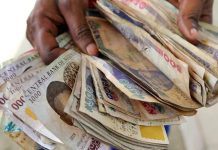Nigeria’s Eurobonds have come under intense selloff pressure in the international market, mirroring trends seen across African indexes following U.S. President Donald Trump’s announcement of reciprocal tariffs. The selloff has accelerated in recent weeks, with Thursday marking one of the sharpest single-day drops in African Eurobonds in recent memory.
Most bonds across the continent saw prices plummet by over 2.5 points, according to an investor note from AIICO Capital Limited. The investment firm attributed the rapid selloff to two main fears: President Trump’s aggressive new tariffs potentially triggering a recession and the simultaneous crash in oil prices, which severely impacted Nigeria and Angola’s bonds.
As a result, Nigerian Eurobond yields surged to 10.15%, with analysts predicting prolonged pressure on Eurobond markets due to the ongoing tariff uncertainties and softening economic indicators.
The rising yields reflect broader market fears, particularly the potential impact of higher tariffs on oil-exporting countries like Nigeria, which rely heavily on the U.S. as a major trading partner. This fear prompted foreign investors to move funds out of Nigeria’s debt, driving yields even higher.
Profit-taking activity was seen across all bond maturities, with the March 2029 Eurobond being closely monitored. Notably, the November 2027 (+44 bps) and March 2029 (+47 bps) maturities saw the most significant yield increases.











